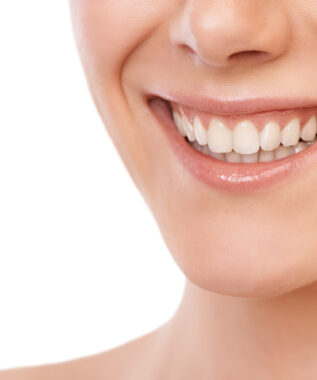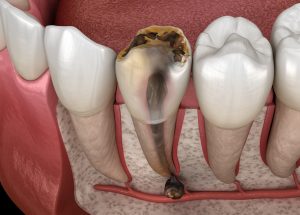 While it may not be at the forefront of your mind at all times, your oral health is important to keep track of. Indeed, a consistent combination of brushing and flossing, attending your regularly scheduled appointments, and making sure to pay attention to the foods and beverages you consume can bring your smile a long way toward health and security for life. Keep in mind, however, that if you fall short of any of these steps, you could experience issues such as infection, decay, and even tooth loss. In today’s blog, your Leawood, KS dentist will discuss what happens once a cavity has spread internally and how a root canal treatment can help.
While it may not be at the forefront of your mind at all times, your oral health is important to keep track of. Indeed, a consistent combination of brushing and flossing, attending your regularly scheduled appointments, and making sure to pay attention to the foods and beverages you consume can bring your smile a long way toward health and security for life. Keep in mind, however, that if you fall short of any of these steps, you could experience issues such as infection, decay, and even tooth loss. In today’s blog, your Leawood, KS dentist will discuss what happens once a cavity has spread internally and how a root canal treatment can help.
Negative Effects Of Not Treating A Cavity
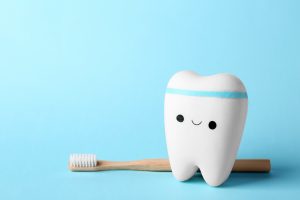 It goes without saying that noticeably major concerns such as a broken bone or dislodged tooth are circumstances in which people know to act with expediency to remedy. Other circumstances such as an aching tooth or mild discomfort, however, are concerns that most tend to wait out. Indeed, the common mindset is that if a trip to the dentist or doctor can be avoided, then so it shall. The negative effect of this, however, is that perceivably minor problems such as a dental cavity can become major if you wait too long. In today’s blog, your Leawood, KS dentist will address what occurs if you do not take care of that cavity.
It goes without saying that noticeably major concerns such as a broken bone or dislodged tooth are circumstances in which people know to act with expediency to remedy. Other circumstances such as an aching tooth or mild discomfort, however, are concerns that most tend to wait out. Indeed, the common mindset is that if a trip to the dentist or doctor can be avoided, then so it shall. The negative effect of this, however, is that perceivably minor problems such as a dental cavity can become major if you wait too long. In today’s blog, your Leawood, KS dentist will address what occurs if you do not take care of that cavity.
Three Benefits Of A Dental Bridge
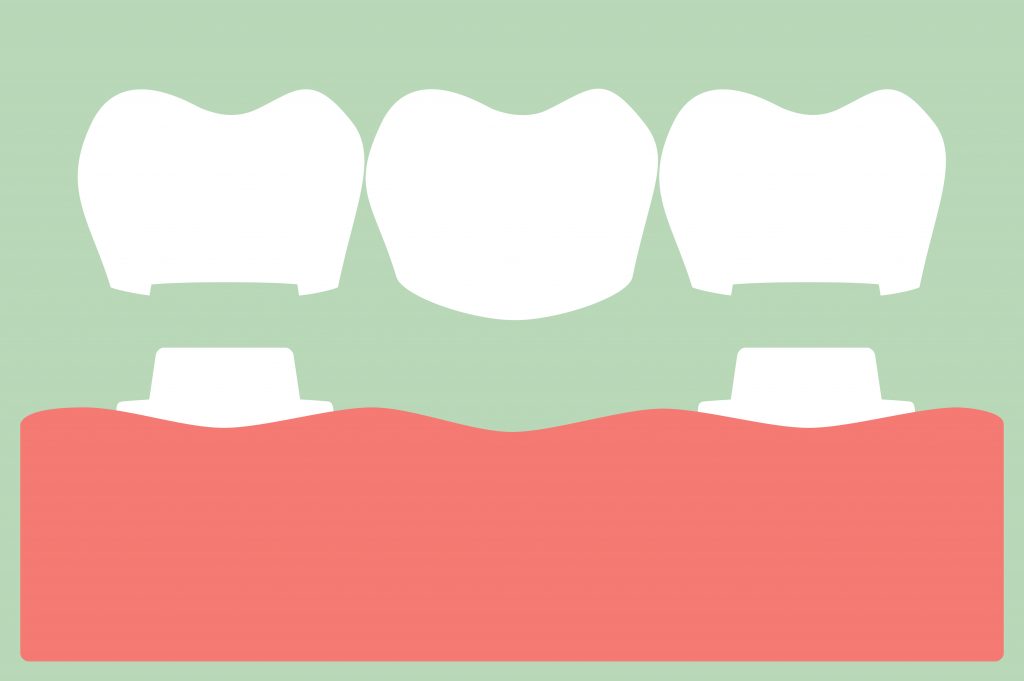 From time to time, you may falter when it comes to sticking to a consistent dental routine. Perhaps something comes up and you must cancel your routine preventive appointment and forget to reschedule it, or maybe you slept through your alarm and had to rush to work, forgetting to brush your teeth. Regardless of the circumstance, however, continually missing steps in your overall care routine can compound, ultimately causing serious concerns such as tooth loss down the line. In today’s blog, your Leawood, KS dentist will discuss what occurs when you do not follow through with routine dental care, and how a dental bridge may help.
From time to time, you may falter when it comes to sticking to a consistent dental routine. Perhaps something comes up and you must cancel your routine preventive appointment and forget to reschedule it, or maybe you slept through your alarm and had to rush to work, forgetting to brush your teeth. Regardless of the circumstance, however, continually missing steps in your overall care routine can compound, ultimately causing serious concerns such as tooth loss down the line. In today’s blog, your Leawood, KS dentist will discuss what occurs when you do not follow through with routine dental care, and how a dental bridge may help.
Three Ways Sedation Improves Your Dental Treatment
 For a number of individuals, a certain anxiety accompanies the idea of having to visit their dentist’s office. Whether the purpose of the visit is a restorative or cosmetic procedure, or even just a simple checkup, the fear of the visit can be enough to cause one to cancel or not show up. Indeed, dental anxiety is a very real phenomenon that affects a number of people annually, causing a sort of push away from proper dental care as your dental visit – a major part of a standard care regimen – is no longer being fulfilled. In today’s blog, your Leawood, KS dentist will address dental anxiety and describe a few ways our office can help by utilizing sedation dentistry.
For a number of individuals, a certain anxiety accompanies the idea of having to visit their dentist’s office. Whether the purpose of the visit is a restorative or cosmetic procedure, or even just a simple checkup, the fear of the visit can be enough to cause one to cancel or not show up. Indeed, dental anxiety is a very real phenomenon that affects a number of people annually, causing a sort of push away from proper dental care as your dental visit – a major part of a standard care regimen – is no longer being fulfilled. In today’s blog, your Leawood, KS dentist will address dental anxiety and describe a few ways our office can help by utilizing sedation dentistry.
How Do Veneers Address Multiple Blemishes?
 Having a perfect smile that you can enjoy anytime is often a goal of many individuals. In fact, a number of people associate a radiant grin with a boosted level of confidence, and vice versa. While structural concerns such as crooked teeth or functional concerns such as a missing tooth often require levels of restorative procedures to address, cosmetic concerns such as a gap, stain, or even chip can more easily be addressed in a quicker manner. In today’s blog, your Leawood, KS dentist will take a look at the number of ways porcelain veneers can address your cosmetic concerns.
Having a perfect smile that you can enjoy anytime is often a goal of many individuals. In fact, a number of people associate a radiant grin with a boosted level of confidence, and vice versa. While structural concerns such as crooked teeth or functional concerns such as a missing tooth often require levels of restorative procedures to address, cosmetic concerns such as a gap, stain, or even chip can more easily be addressed in a quicker manner. In today’s blog, your Leawood, KS dentist will take a look at the number of ways porcelain veneers can address your cosmetic concerns.
Addressing Your Crooked Teeth With Invisalign®
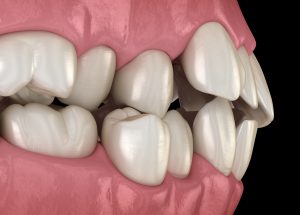 From a young age, your guardians have emphasized the importance of excellent oral care by helping you create and stick to a routine of brushing and flossing. For most, the biggest threat to their oral health is harmful oral bacteria that cause a slew of concerns ranging from decay to infection and even tooth loss. For others, the biggest problem can arise from a crooked smile. While the latter may seem more cosmetic in nature, there are actually a number of problems that can arise if it is not handled in an efficient manner. In today’s blog your Leawood, KS dentist will discuss the true dangers that accompany an uneven grin and how Invisalign® aligners can help.
From a young age, your guardians have emphasized the importance of excellent oral care by helping you create and stick to a routine of brushing and flossing. For most, the biggest threat to their oral health is harmful oral bacteria that cause a slew of concerns ranging from decay to infection and even tooth loss. For others, the biggest problem can arise from a crooked smile. While the latter may seem more cosmetic in nature, there are actually a number of problems that can arise if it is not handled in an efficient manner. In today’s blog your Leawood, KS dentist will discuss the true dangers that accompany an uneven grin and how Invisalign® aligners can help.
What To Remember In Your Dental Emergency
 While following a healthy preventive dental care regimen is the number one way to ensure a lifelong smile, the fact of the matter is that sometimes accidents happen. Whether you chip a tooth while eating a crunchy snack or have a mishap that leads a knocked-out structure, time is of the essence when it comes to repairing your tooth and restoring your smile. In today’s blog, your Leawood, KS dentist will discuss circumstances in which you may need emergency dental care and what you should do to ensure the best outcome.
While following a healthy preventive dental care regimen is the number one way to ensure a lifelong smile, the fact of the matter is that sometimes accidents happen. Whether you chip a tooth while eating a crunchy snack or have a mishap that leads a knocked-out structure, time is of the essence when it comes to repairing your tooth and restoring your smile. In today’s blog, your Leawood, KS dentist will discuss circumstances in which you may need emergency dental care and what you should do to ensure the best outcome.
A Conservative Approach To A Cracked Tooth
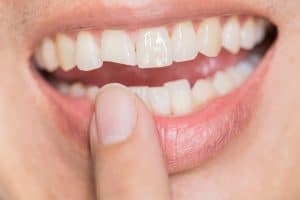
Many individuals endure a form of dental anxiety in which the notion of extensive treatment or excessive structural change bars them from attending necessary visits that keeps up with their oral health. What this also means is that their smiles are even more at risk for infections such as periodontal disease, tooth decay, and loss. For some, the same fear accompanies minor concerns such as a chipped or cracked tooth. In today’s blog, your Leawood, KS dentist will address the way that cosmetic dentistry can conservatively address these issues and leave you feeling fulfilled as you are once again able to enjoy a seamless grin.
Ways You Can Avoid Periodontal Disease
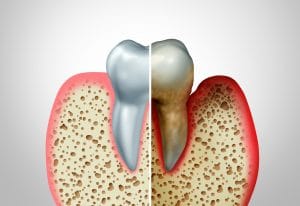 It can be challenging at times to keep track of your health, as there are multiple factors to take into consideration. From your physical health to mental health and even dental health, it takes constant work to make sure all is well. When it comes to your oral hygiene in particular, a number of concerns can cause decay, infection, and ultimately tooth loss. In today’s blog, your Leawood, KS dentist will address ways you can avoid loss through constant care for not only your teeth, but the surrounding oral structures as well.
It can be challenging at times to keep track of your health, as there are multiple factors to take into consideration. From your physical health to mental health and even dental health, it takes constant work to make sure all is well. When it comes to your oral hygiene in particular, a number of concerns can cause decay, infection, and ultimately tooth loss. In today’s blog, your Leawood, KS dentist will address ways you can avoid loss through constant care for not only your teeth, but the surrounding oral structures as well.
Replacing As Few Or As Many Teeth As Needed With Implants
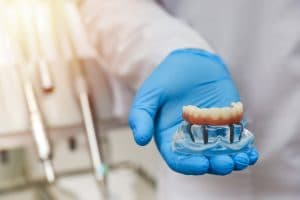 Losing a tooth as an adult can be a troubling process for many. What can be worse, however, is choosing not to replace the crown once it’s gone. Indeed, routine preventive care both in-office and at home is needed to ensure the health of your smile, and skipping even a portion of this routine could have negative effects in the long run. This can include decay, infection, and inevitably structural loss. In today’s blog, your Leawood, KS dentist will address what you can do to best preserve your oral health and restore function through the help of a dental implant.
Losing a tooth as an adult can be a troubling process for many. What can be worse, however, is choosing not to replace the crown once it’s gone. Indeed, routine preventive care both in-office and at home is needed to ensure the health of your smile, and skipping even a portion of this routine could have negative effects in the long run. This can include decay, infection, and inevitably structural loss. In today’s blog, your Leawood, KS dentist will address what you can do to best preserve your oral health and restore function through the help of a dental implant.




